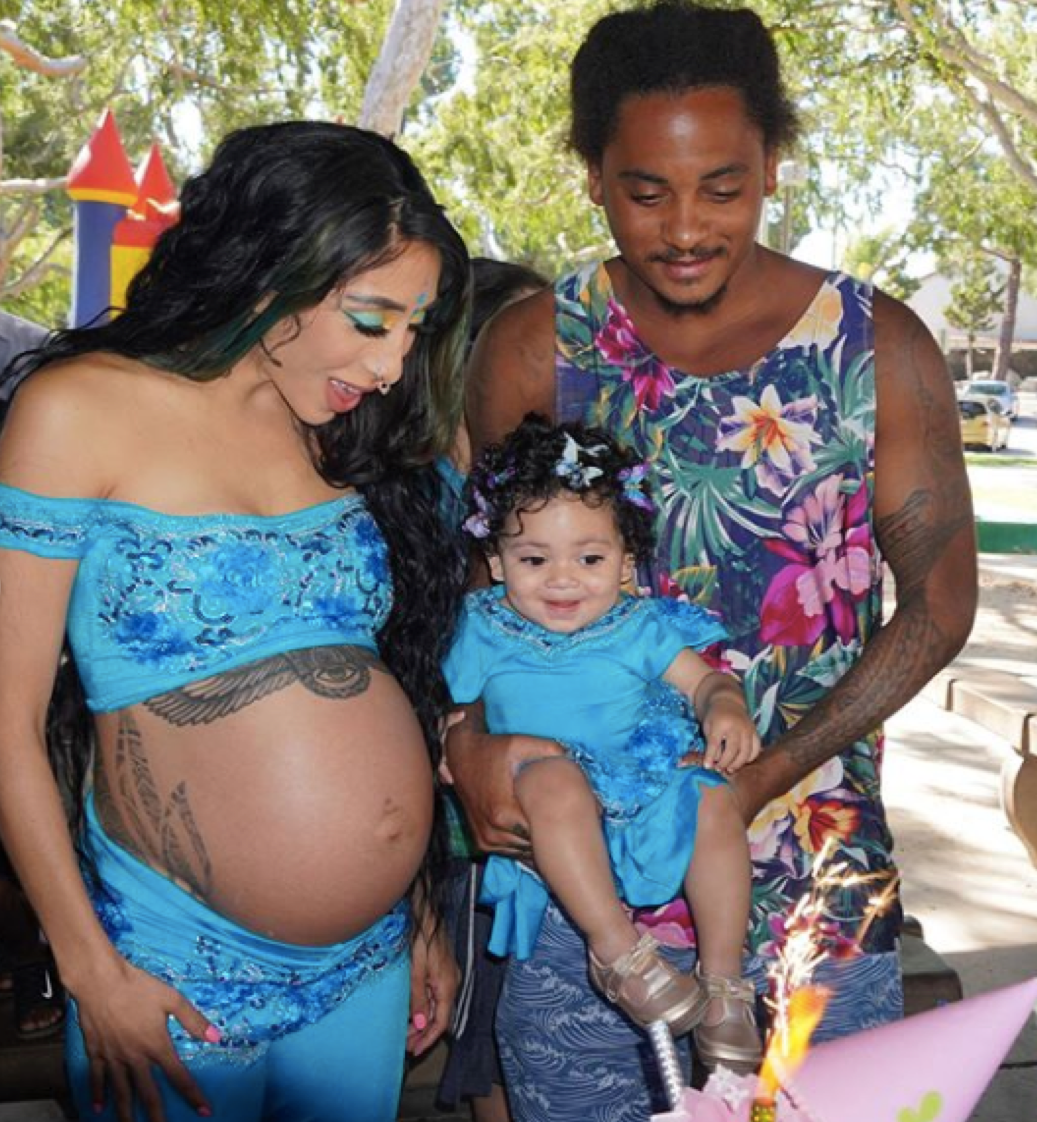
This week, rapper Snoop Dogg’s family suffered a great loss. Snoop’s oldest son, Corde Broadus, had just become a father again after welcoming his son, Kai, with his partner Soraya. Sadly, Kai has passed away 10 days after his birth.
Corde shared the sad news on Instagram under a pictures and videos of him and his 13-month-old daughter, Elleven, and Soraya.
"Thank you for all the condolences. I think we missed the biggest lesson tho. My son did all he needed to do in his 10 days here on earth. He has now graduated and continuing to do work. He died in my arms and that feeling of energy will never leave me. Kai wants all of you to know he’s doing great and wants to continue to inspire those who light is dim. It makes perfect sense to me why 2 spiritual loving and healing people like me and Soraya was given an angel like Kai and now we will use his energy to raise 11 to the best person she can be for ALL of us. Life is beautiful y’all and I want y’all to kno Soraya is at peace and is moving forward with huge smiles and A little baby running around thinking she grown 😁😂🤙🏿. Jus want to use my spotlight for happiness and growth and not anything less than. Thank you! Now let’s get back to our soul purpose - Kai Love"

Broadus posted another picture of Elleven to Instagram on Sunday with the caption “Moving Forward 💜” seemingly as another tribute to Kai Love.
Broadus announced Kai Love’s passing in a Friday Instagram post writing, “Kai Love 9/15/19 – 9/25/19 ///// My Son Kai brought so much love and positivity into this world.”
Snoop made his own message on social media when he posted a message to his own Instagram saying, “if you are facing something you don’t understand, choose to trust God. Remember...
...all He has done for you. His ways are higher than ours.”

While the family has yet to reveal the cause of death, we know that the rate of SIDS, Sudden Infant Death Syndrome, has dropped dramatically. However, there are approximately 2,500 infants who die of SIDS every year in the U.S., and SIDS is the third leading cause of infant mortality.
Sudden infant death syndrome (SIDS) is the unexplained death, usually during sleep, of a seemingly healthy baby less than a year old. SIDS is sometimes known as crib death because the infants often die in their cribs.
Although the cause is unknown, it appears that SIDS might be associated with defects in the portion of an infant's brain that controls breathing and arousal from sleep.
Researchers have discovered some factors that might put babies at extra risk.
Physical factors associated with SIDS include:
- Brain defects. Some infants are born with problems that make them more likely to die of SIDS. In many of these babies, the portion of the brain that controls breathing and arousal from sleep hasn't matured enough to work properly.
- Low birth weight. Premature birth or being part of a multiple birth increases the likelihood that a baby's brain hasn't matured completely, so he or she has less control over such automatic processes as breathing and heart rate.
- Respiratory infection. Many infants who died of SIDS had recently had a cold, which might contribute to breathing problems.
The items in a baby's crib and his or her sleeping position can combine with a baby's physical problems to increase the risk of SIDS. Examples include:
- Sleeping on the stomach or side. Babies placed in these positions to sleep might have more difficulty breathing than those placed on their backs.
- Sleeping on a soft surface. Lying face down on a fluffy comforter, a soft mattress or a waterbed can block an infant's airway.
- Sharing a bed. While the risk of SIDS is lowered if an infant sleeps in the same room as his or her parents, the risk increases if the baby sleeps in the same bed with parents, siblings or pets.
- Overheating. Being too warm while sleeping can increase a baby's risk of SIDS.
Although sudden infant death syndrome can strike any infant, researchers have identified several factors that might increase a baby's risk. They include:
- Sex. Boys are slightly more likely to die of SIDS.
- Age. Infants are most vulnerable between the second and fourth months of life.
- Race. For reasons that aren't well-understood, nonwhite infants are more likely to develop SIDS.
- Family history. Babies who've had siblings or cousins die of SIDS are at higher risk of SIDS.
- Secondhand smoke. Babies who live with smokers have a higher risk of SIDS.
- Being premature. Both being born early and having a low birth weight increase your baby's chances of SIDS.
The 25-year-old Corde made Snoop a first-time grandfather in 2015 with the birth of his eldest child, son Zion from a previous relationship.









